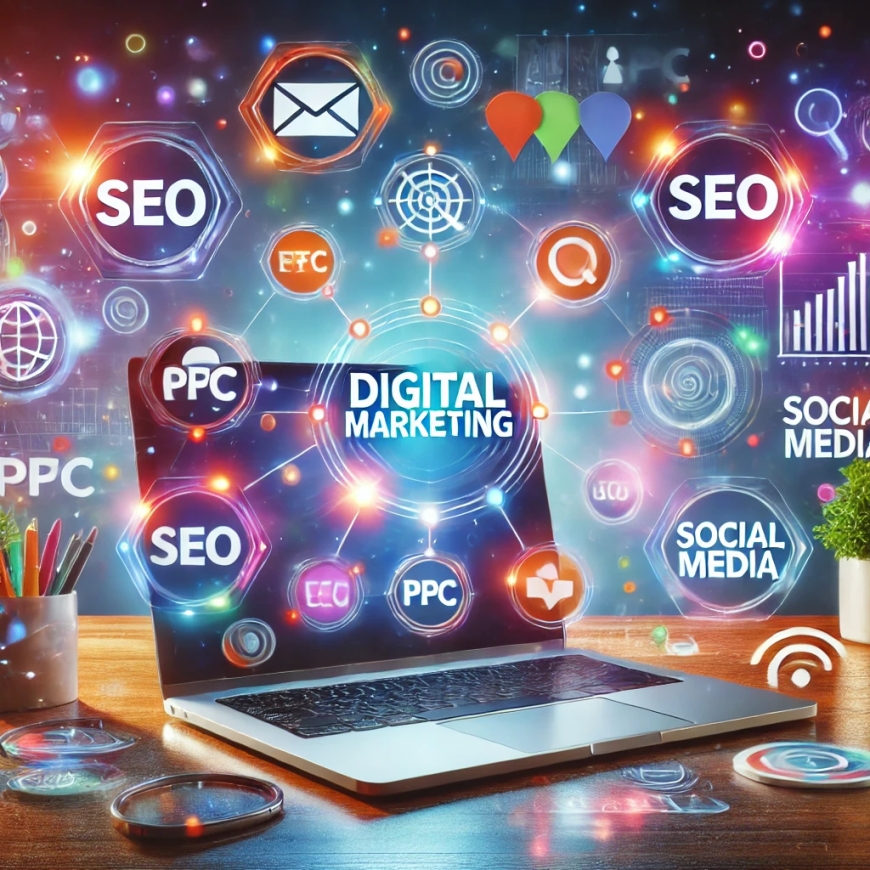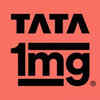Unlocking the Basics of Digital Marketing
Digital marketing is the art and science of promoting products or services using digital channels, from social media platforms to search engines. It’s reshaping how brands interact with customers, offering endless opportunities to reach global audiences in a cost-effective and measurable way. So, why is digital marketing essential, and how has it evolved over time? This article provides a comprehensive guide to understanding digital marketing, exploring its types, benefits, and strategies that drive success in the digital age

What is Digital Marketing?
In today’s world, digital marketing is a term on almost everyone’s radar. But what exactly does it mean? Digital marketing refers to any marketing efforts conducted through electronic devices or the internet. Essentially, it’s the process of promoting products, services, or brands to reach and engage with consumers using digital channels such as social media, email, search engines, and websites.
Why Digital Marketing is Essential Today
The importance of digital marketing has grown exponentially over the past decade. Businesses are increasingly shifting from traditional marketing strategies to digital ones due to the significant advantages digital channels offer. Unlike traditional marketing, which might include print ads or direct mail, digital marketing allows businesses to reach a much larger audience, personalize messages, and measure success with analytics.
The Evolution of Digital Marketing
Early Days of Digital Marketing
The rise of digital marketing began with the advent of the internet in the 1990s. Back then, marketing was simpler and mainly involved email and basic websites. As more people gained access to the internet, marketers saw the potential to connect with their audiences in new ways.
Rise of Social Media and Smartphones
Social media platforms, such as Facebook, Instagram, Twitter, and LinkedIn, revolutionized digital marketing, creating direct channels for brands to interact with consumers. With smartphones in almost every pocket, brands could now engage customers wherever they were, increasing opportunities for real-time communication.
Types of Digital Marketing Channels
Digital marketing is a broad field with numerous channels. Here are some of the main types:
1. Search Engine Optimization (SEO)
SEO is the practice of optimizing a website to rank higher on search engine results pages (SERPs) for relevant keywords. By improving visibility on search engines, businesses can attract more organic (unpaid) traffic to their site.
2. Content Marketing
Content marketing involves creating valuable, relevant content to attract and engage an audience. It can take the form of blogs, articles, videos, infographics, or podcasts, and is often a key part of building brand authority.
3. Social Media Marketing
This type of marketing uses social media platforms to connect with audiences, build brand awareness, and drive traffic. Platforms like Facebook, Instagram, and LinkedIn allow businesses to reach targeted audiences effectively.
4. Email Marketing
Email marketing remains one of the most effective ways to communicate with customers. By sending targeted, personalized emails, businesses can nurture leads and encourage repeat purchases.
5. Pay-Per-Click Advertising (PPC)
PPC allows advertisers to pay a fee each time their ad is clicked. Popular PPC channels include Google Ads, where ads appear on search engine results, and social media platforms that offer sponsored content.
6. Affiliate Marketing
Affiliate marketing involves promoting other businesses’ products or services and earning a commission for each sale. Affiliates use unique tracking links to attribute conversions to their efforts.
7. Influencer Marketing
Influencer marketing leverages the reach of individuals who have large followings, especially on social media. By partnering with influencers, brands can gain visibility and credibility among new audiences.
Benefits of Digital Marketing
Digital marketing brings numerous benefits for businesses and marketers alike.
1. Global Reach and Audience Targeting
Digital marketing allows businesses to reach a global audience, breaking down geographical barriers. Moreover, it offers the ability to target specific demographics, interests, and behaviors, ensuring the message reaches the right people.
2. Cost-Effectiveness
Compared to traditional marketing, digital marketing is often more affordable. Many digital marketing tactics, like social media and email marketing, can be done at low or no cost, making it ideal for businesses of all sizes.
3. Engagement and Customer Interaction
Digital marketing allows for direct interaction with customers. Brands can receive feedback, answer questions, and build a relationship with their audience, leading to increased trust and loyalty.
4. Measurable Results and Analytics
With tools like Google Analytics, businesses can measure nearly every aspect of their digital marketing efforts, from website traffic to conversion rates. This data-driven approach allows marketers to continuously improve their strategies.
Key Components of a Successful Digital Marketing Strategy
Understanding the Target Audience
A successful digital marketing strategy begins with understanding the target audience. Knowing the demographics, preferences, and behavior of potential customers allows for more effective messaging and channel selection.
Creating a Strong Brand Presence
Building a recognizable brand is crucial in the digital world. Consistent branding across all digital channels helps create a cohesive identity that customers recognize and trust.
Setting Clear Goals and Objectives
Digital marketing goals should align with the overall business objectives, whether that’s increasing brand awareness, generating leads, or driving sales. Having clear goals makes it easier to measure success.
Budget Planning and Resource Allocation
Careful planning of budgets and resources ensures that funds are allocated effectively across the digital marketing mix, allowing businesses to maximize their return on investment (ROI).
SEO: The Backbone of Digital Marketing
On-Page SEO and Keywords
On-page SEO involves optimizing elements on a website, such as titles, meta descriptions, and keywords, to make it more search-engine-friendly. Keyword research is vital to align with what potential customers are searching for.
Off-Page SEO and Link Building
Off-page SEO refers to activities outside of the website that help improve its ranking, primarily through backlinks from other reputable sites.
Technical SEO
Technical SEO focuses on aspects like website speed, mobile optimization, and security, ensuring a smooth user experience and better ranking potential.
Role of Content in Digital Marketing
Types of Content for Digital Marketing
From blog posts to videos and eBooks, content comes in many forms. Each type can serve a unique purpose, whether it’s to educate, entertain, or persuade the audience.
Importance of Quality Content
High-quality, relevant content builds trust, authority, and engagement. Search engines also prioritize quality content, so businesses benefit from better visibility.
Social Media Marketing Strategies
Choosing the Right Platforms
Not all social media platforms are suitable for every business. Brands should focus on the platforms where their target audience spends the most time.
Creating Engaging Content
Content on social media needs to be engaging, visually appealing, and tailored to the platform. Interactive elements like polls, stories, and live videos can help increase engagement.
Paid Advertising in Digital Marketing
Understanding PPC and Ad Campaigns
PPC campaigns allow businesses to bid for ad placements. Successful PPC advertising involves careful keyword targeting and budgeting.
Creating Effective Ad Copy
Well-written ad copy can capture attention and encourage clicks. Using persuasive language and clear calls-to-action (CTAs) are essential.
Email Marketing: Still Relevant
Building an Email List
Email lists are essential for effective campaigns. Offering value, such as exclusive content or discounts, can help build a list of interested subscribers.
Crafting the Perfect Email Campaign
Emails should be personalized and relevant to the audience. By segmenting lists, businesses can send targeted messages that resonate with specific groups.
Analyzing Digital Marketing Metrics
Tracking Conversion Rates
Understanding the percentage of visitors who take the desired action (e.g., making a purchase) helps evaluate a campaign’s effectiveness.
Using Analytics for Optimization
Analytics tools provide insights into which strategies are working and where adjustments are needed. Data-driven decisions lead to more effective marketing.
Trends in Digital Marketing
Video Marketing and Livestreaming
Video content, including live streams, has become a powerful way to engage audiences. Short-form videos on platforms like TikTok and Instagram Reels are especially popular.
Voice Search Optimization
With the rise of voice-activated devices, optimizing content for voice search is becoming essential. Voice searches are often longer, so focusing on conversational keywords can help.
Future of Digital Marketing
The Role of AI and Automation
AI and automation are transforming digital marketing, from chatbots to personalized recommendations. These technologies are making campaigns more efficient and tailored.
Growth of Augmented Reality and Virtual Reality
AR and VR provide immersive experiences, allowing customers to interact with products in virtual environments. This is particularly valuable for e-commerce.
Conclusion
Digital marketing is a dynamic field with endless opportunities for businesses to grow and engage with their audience. As technology advances, staying updated with the latest trends and strategies is crucial for success. Whether it’s SEO, content creation, or social media, digital marketing offers tools to reach customers where they spend the most time – online.
FAQs
-
What is digital marketing?
Digital marketing is the use of digital channels like social media, search engines, and email to promote products and engage customers. -
Why is digital marketing important?
Digital marketing allows businesses to reach a broader audience, personalize their messages, and measure results, making it highly effective. -
What are the main types of digital marketing?
Major types include SEO, content marketing, social media, email marketing, PPC, and affiliate marketing. -
How can I start with digital marketing?
Start by understanding your audience, setting goals, and choosing the right channels for your business. -
Is digital marketing better than traditional marketing?
Digital marketing offers more precise targeting, measurable results, and a global reach, often making it more effective than traditional marketing for many
What's Your Reaction?
 Like
0
Like
0
 Dislike
0
Dislike
0
 Love
0
Love
0
 Funny
0
Funny
0
 Angry
0
Angry
0
 Sad
0
Sad
0
 Wow
0
Wow
0


































